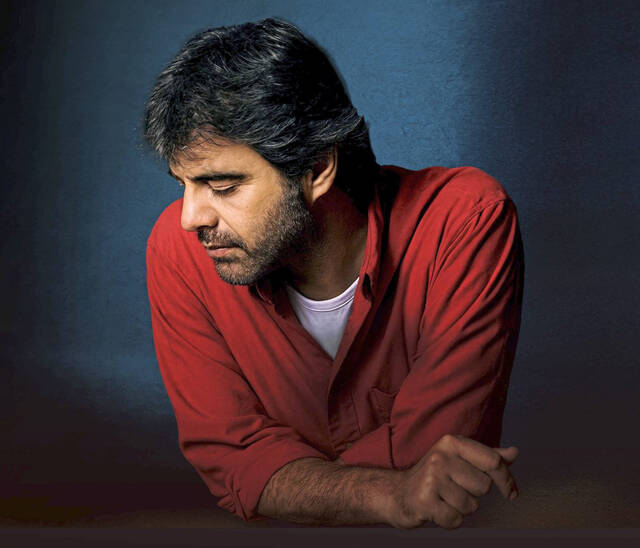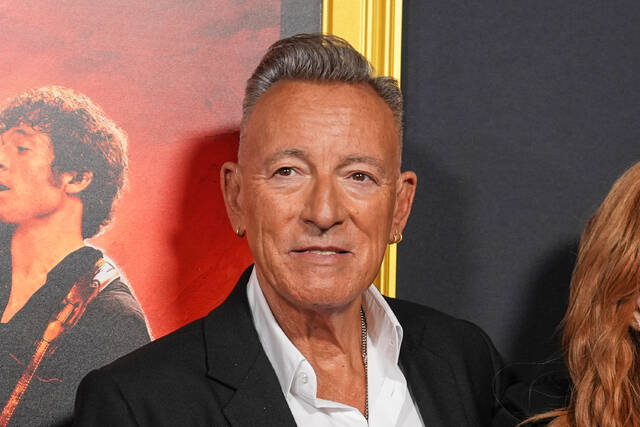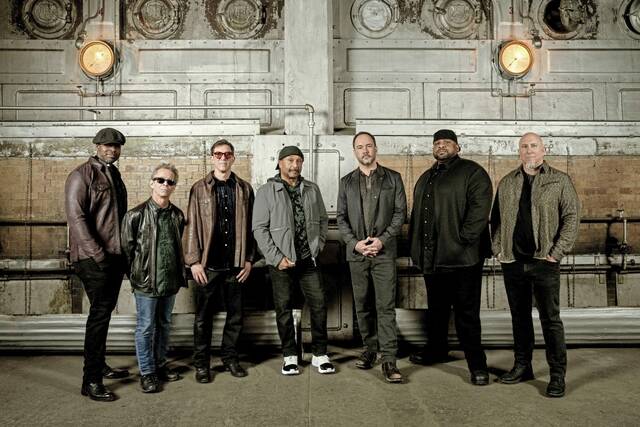Although Everclear frontman Art Alexakis shot to fame with the song “Santa Monica,” he now lives a little further away in Pasadena, Calif.
But he’d been out of his house for almost four months after it sustained smoke and water damage during the southern California wildfires earlier this year. The remediation process has been exhausting, especially dealing with a company looking to take advantage of the situation.
“They were just raping our insurance company. Our insurance company’s been amazing. I know not too many people say that,” Alexakis said last week. “None of my friends said that. Some are like, they’re OK. Some are like, they suck. My guy has just been amazing. So I took it away from the remediation, and my insurance guy’s like, (expletive) that guy. Literally, he said, ‘(Expletive) that guy. Just send me the invoices. I’ll approve them, and I’ll send you the money.’ And he’s been doing it. My wife’s like, ‘I just got $28,000 Zelle’d to me.’”
With that out of the way, Alexakis can look forward to hitting the road with Everclear, the alternative band known for songs like the aforementioned “Santa Monica,” “Father of Mine” and “I Will Buy You A New Life.” Everclear will visit Jergel’s in Warrendale on April 26 for a sold-out show, with Silver Screen and The Sages opening. This year also marks 30 years since the release of their “Sparkle and Fade” album, with an anniversary tour starting this fall.
In a call from Pasadena, Alexakis discussed normal life, the 30th anniversary of “Sparkle and Fade,” why he’s still touring and more:
I know you’re in Pasadena, so how far is that from Santa Monica? Do you get there often?
It’s about 35 miles. I go out there when I need to go out there, and I always go places I like to eat when I’m out there. But I don’t live in Santa Monica because a lot of people from the entertainment business have moved out there and made it really expensive. And it’s not even just that.
It’s just, I work in the entertainment business. I don’t want to live in it. And that’s the case a lot of times. Your neighbor’s like, ‘Hey man, my buddy’s got a friend and he’s doing this and he does videos, not pressuring you.’ Yeah, you are. I don’t want to hear about it. I want my neighbor to come over and borrow some sugar or talk to me about building a wall together and splitting the difference. That’s fine. That’s what neighbors do, right?
You want your neighbors to know you as Art, not Art from Everclear.
Absolutely. It’s like going to 12-step meetings and you walk in the meeting, you don’t break the anonymity of people, even if you have all that guy’s records. I think for me, that’s the case with a lot of people. For me, they have my records and it’s for me as well. I go to meetings with guys that have been making records since the ‘60s, like legendary guys. When you’re in that meeting, when I’m in that meeting, you know, geez, and I’m making up a name here: Bill, alcoholic. I’m Art, alcoholic. That’s it. And it’s the same thing with neighbors. So that’s why I don’t live in Santa Monica, but I do go there about probably six, seven times a year.
May will mark 30 years since the release of “Sparkle and Fade,” so looking back, what did that album mean to your career?
It means everything. I’m working on the 30th anniversary remaster right now. As a matter of fact, I just sent in some mixes off to my master guy, and I’m waiting for feedback from him on what it’s going to take to make everything live together, just on extra tracks. The basic album is remastered. We’re trying to manage a few tracks and see how those are going to set up with each other for the CD version. The album version, it’s going to have an extra two to four tracks, like on a single, like it was on the original.
So that record opened the door to people, and it’s funny because people are like, wow, it came really soon for you. I go, no it didn’t. I was 32 years old with that album when I got signed. I was 33 when it came out. I was 34 when it really hit. So I’ve been playing in bands my whole life, like since I was 16, 17 years old. Been playing guitar since I was 14 and started playing bands when I was 16. So when you look at it from that point of view, it’s like, it took its time. But for Everclear, Everclear started in ‘92, and we got signed in ‘94, so I guess if you look at it from that point of view, it seems soon. But it really wasn’t.
And that record just means the world to me. That was the first time I had a budget to make an album and I could just do what I wanted to do as a producer, or as a writer or a musician. It was a big, big deal. And the fact that it turned into, now I think it’s just about double platinum, but it was platinum at the time. That’s doesn’t really happen a lot. And then following up with the now triple platinum, “So Much for the Afterglow” and then almost double platinum “Songs from an American Movie,” that’s a career that people don’t really have anymore. Bands now, it’s like labels sign them for that hit. Specifically, they put that out. They literally built a marketing plan on what they think they can sell, and when they reach those numbers, the money just stops, literally. I’m so glad we came up when we came up because it was the last gasp of the old-school label people. … So I feel like we were blessed on many ways on that record. I think the songs still hold up. I’m listening to the original mixes of it, not the mastered version that everybody’s heard. It’s the original mix, and man, first of all, this new record, this new remaster, it’s going to sound great. It’s a lot ballsier.
With a song like “Heartspark Dollarsign,” is it sad that a song like that is still relevant to many people, that we haven’t moved past those stigmas of an interracial relationship?
I think it depends. I think, yes, to answer your question, it does. It was sad at that time that I had to write a song like that, but the idea that it was culturally valid at the time, and it still is, in a lot of places to a lot of people, even more so now, just with the climate that’s in our country, of people trying to just make everything safe. And instead of enjoying and celebrating diversity, they’re trying to make it still bad, (that) diversity is something bad. That makes me sad.
It looks like you haven’t played “Chemical Smile” in about 10 years, so is there any reason in particular for dropping that one?
No, man. Just people don’t ask for it. People ask for it every now and then. It’s fun. You know what, relearning it and we love playing that song, so that and “Nehalem” and the more punky songs on that record, like “Her Brand New Skin.” we’re playing all the songs on that record. One song people ask for a lot that we don’t play a lot is “My Sexual Life.” And so for this tour coming up — it’s not going to be at the Jergel’s show — but at the tour that we’re doing in the fall with Local H and Sponge, we’ll be playing the whole record.
It looks like the Jergel’s show is sold out except for the VIP meet-and-greet, so there’s obviously still interest in the band.
We’ve been selling out shows left and right. That last tour we did last year with Marcy Playground and Jimmie’s Chicken Shack, I’d say two thirds of the shows were sold out. This year, it’s selling crazy. There’s already four shows — dude, the tour isn’t for like five, six months — and there’s already four shows sold out. That’s incredible. And there’s about another 10 that’ll sell out in the next two, three weeks. So you might say we’re going to do better this year than we did last year, and we’re playing bigger venues.
Everclear and Local H and Sponge, it’s a stacked lineup there.
I think so. It’s just ‘90s balls-out rock ‘n’ roll, right? I’m stoked. And I love those guys. I love all those guys.
Related
• Former Don Caballero drummer Damon Che returning to Pittsburgh with new duo Yesness• Spiritbox rides the wave of 'Tsunami Sea' in sold-out Pittsburgh concert
• 2025 Pittsburgh area concert calendar
It’s good that these bands from the ’90s are still going strong too.
A lot of us are, we’re still out there making our living doing what we love to do, just living the dream, right?
That leads to my next question. I was reading a Rolling Stone interview from 1998, and you said you didn’t want to be doing this very far into your 40s. So what changed?
(Laughs) Yeah, well, you know, (expletive) happens, man, what are you going to do? I make a wonderful living doing this, and I’m stoked. I still have to work for a living for whatever reason, and we’re still going and I still feel creative. So I know I said that. So did Mick Jagger, and we were both wrong. If I get to be in his company about being wrong about still wanting to play rock ‘n’ roll, I mean, I’m OK with that. It’s good company, right? I’m hoping that, (expletive), I can’t move like he does. He’s in his 80s. I’ve got MS, I can’t move like that (laughs). Before I had MS, I still couldn’t move like that, who am I fooling?








